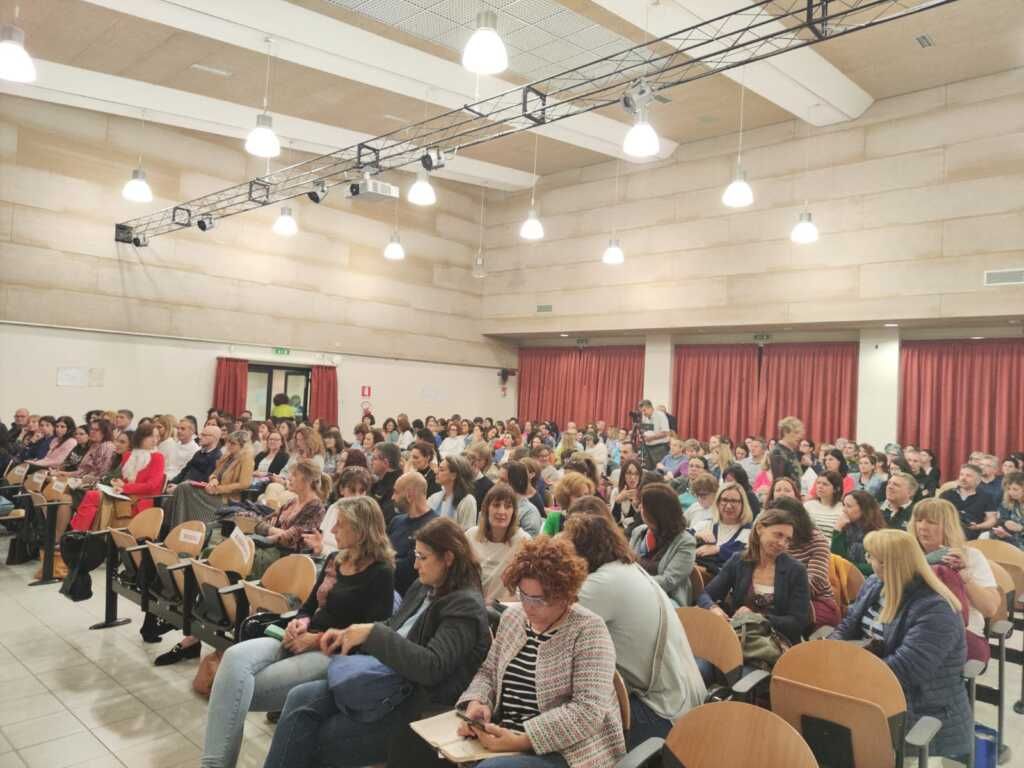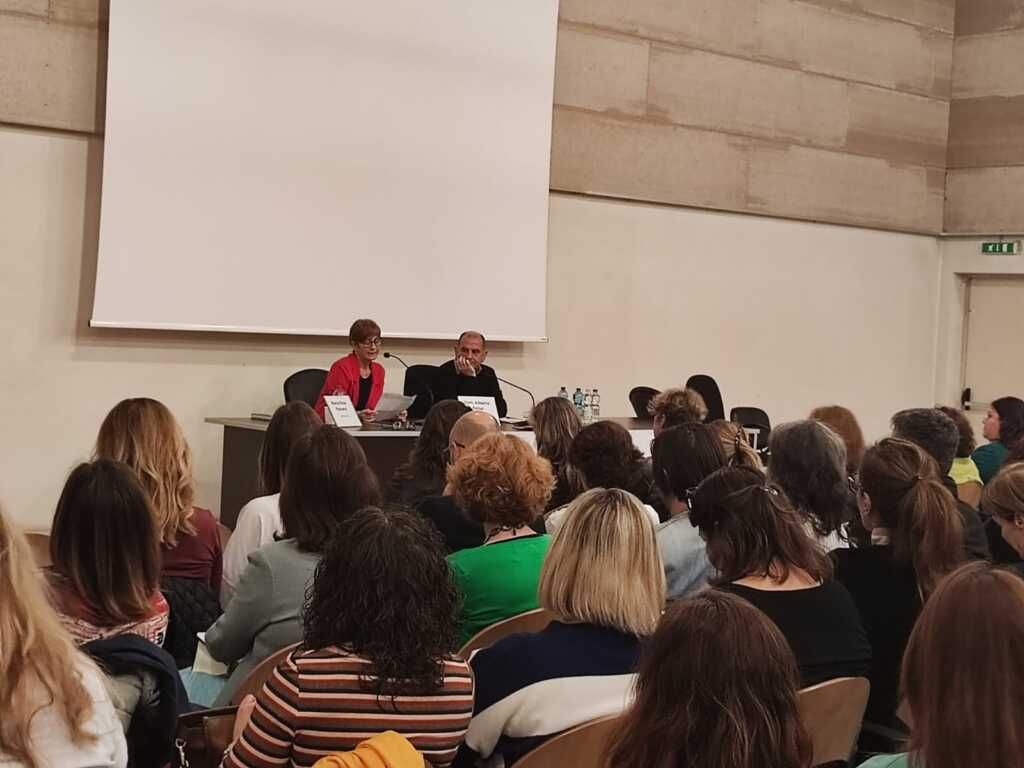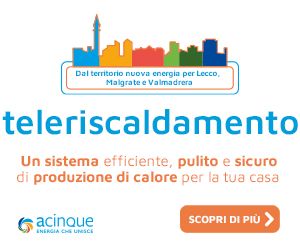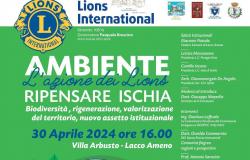
Last night the meeting with Alberto Pellai organized by the Dietro la lavagna association
“Adolescence is a phase of discovery and we parents must be able to manage our anxieties, not letting our children be imprisoned in virtual reality”
MERATE – Alliances between parents, conviviality at the table, no telephones and video games up to 14 years of age and social media banned up to 16 years of age. Or, to put it in a slogan, more real life and less virtual reality. These are the ideas that he provided, with great concreteness and affability Alberto Pellai, renowned doctor and psychotherapist, invited last night, Monday, to the second appointment of the series of meetings “SOS teenagers”, organized by the Dietro la lavagna association.
The evening was characterized by a predominantly male focus, starting from a pressing topical theme such as gender violence, analyzing the difference between a real man or a real man.

“Behind the blackboard is an association that goes like a tank – began Pellai, after the introduction of the president of the association Maria Rosa Panzera -. When I received the invitation I wondered if I should return after having been here twice already. But the proposed theme was very challenging and I say this as parents of four children aged between 15 and 23”. And it is precisely from the concrete examples of situations and critical issues experienced with children that Pellai started in his dissertation, speaking of a rampant emotional illiteracy, especially in the male world: “Gender violence is an issue we need to deal with. Male relationships must be healthy, nurturing and intimate.”
Without granting discounts to anyone, he then pointed out: “We are the parents who live in a paradoxical situation because we have worked hard to raise our children happy and we are raising the generation of unhappiest teenagers. All the mental health indices tell us this. It’s as if something didn’t trigger well.”

And it is from this fact that the expert’s analysis began: “Confinement at home is not good for adolescence which is by its nature a period of exploration. In the conflict between inside and outside, the urge to go outside must always win. And we parents must be able to manage our protective anxiety by letting our children move away from us.”
In this dichotomy, virtual reality is making its way with ever greater arrogance and impetuosity: “Reality has changed a lot in the last 10 years. We have transferred growthwhich was previously faced in a real-life area having to manage a considerable amount of real risk, in virtual reality”, thus losing sight of a whole series of skills and competences that can only be acquired by exploring the real world.
Giving the example of a group of scientists who had tried to recreate the biosphere, forgetting about the lashing effect of the wind, Pellai emphasized, several times, the need to let his children have concrete experiences, even if this means expose them to some functional risk. “We raise boys locked in cars to accompany them to various activities or locked in the house for fear of danger, raising ultra-fragile males on a series of skills and competences. Those of you who have 16 or 17 year old children try sending them to the post office to pay a bill. It’s like sending them to Mars.”

Going back to finding examples and ideas from his family life, the psychotherapist then talked about the pact he made with one of his children during the summer holidays after fifth grade: “He didn’t want to do his homework because no one would correct it for him. We asked him to find a task, which was equivalent to taking on a commitment and responsibility, to do every day during the summer. And he asked to go shopping by bicycle to the village supermarket located a kilometer and a half away.”
The parents’ response was yes, albeit with some stratagems to ensure the management of potentially difficult situations. “Training our children for life means exposing them to a functional dose of risk. But the more we strengthen the roots, the more the branches rise towards the sky at the cost of having to curb our anxieties.”
Conveying empathy to the public, Pellai then talked about the criticisms received from other parents, worried about criminals and the dangers of the road, which is why the green light is given to their pre-adolescent son: “But it is not possible to aim for a life at zero risk.”
We should worry more about the time spent in the room in front of video games, alone in front of complicated dynamics for children of middle school age in front of virtual opponents built with pixels. “They find themselves in hyper-stimulating and hyper-excited environments, no longer finding the words to tell what they feel. And few boys, unlike girls, then reach the room of words because the belief persists that the real man cannot be fragile and cannot ask for help. “It’s as if we gave them a Ferrari in their hands thinking that they are capable of driving it. But we must be the first to reflect on what we can grant him and what not.”
Also answering some questions posed by some parents present in the room, Pellai reiterated the importance of placing bans on the use of smartphones up to the age of 14 and social media up to the age of 16. “I said it ten years ago and now the scientific evidence of research carried out in the field confirms the urgency of setting limits simply because boys and girls are not ready for the bombardment triggered by virtual reality, some attracted and catapulted ever earlier into the world of pornography and the others put into competition with images on social media that are increasingly less real and credible. Suggesting watching the documentary “The social dilemma” even to middle school teachers, Pellai proposed stipulating digital pacts and educational alliances between schools and other parents to avoid the isolation of those who grow up in a family where they try to limit virtual exploration.
“It’s important to find time to sit at the table together, also inviting friends and other parents. Conviviality is a precious value that protects itself from many risks, including isolation and loneliness” she concluded.

Tags: SOS adolescents sold Merate meeting Pellai












